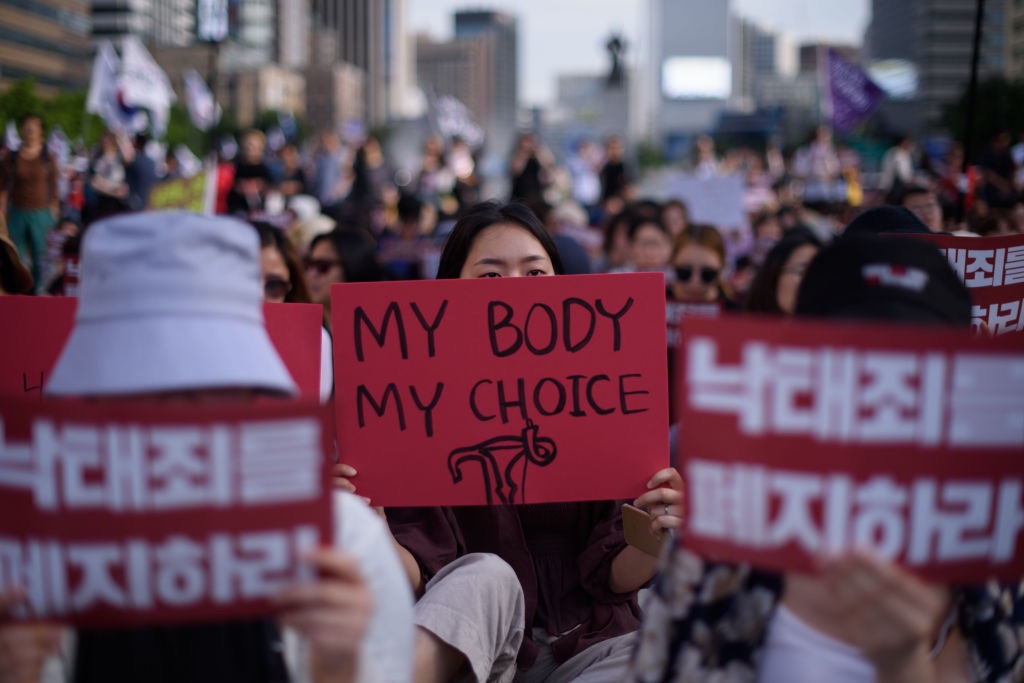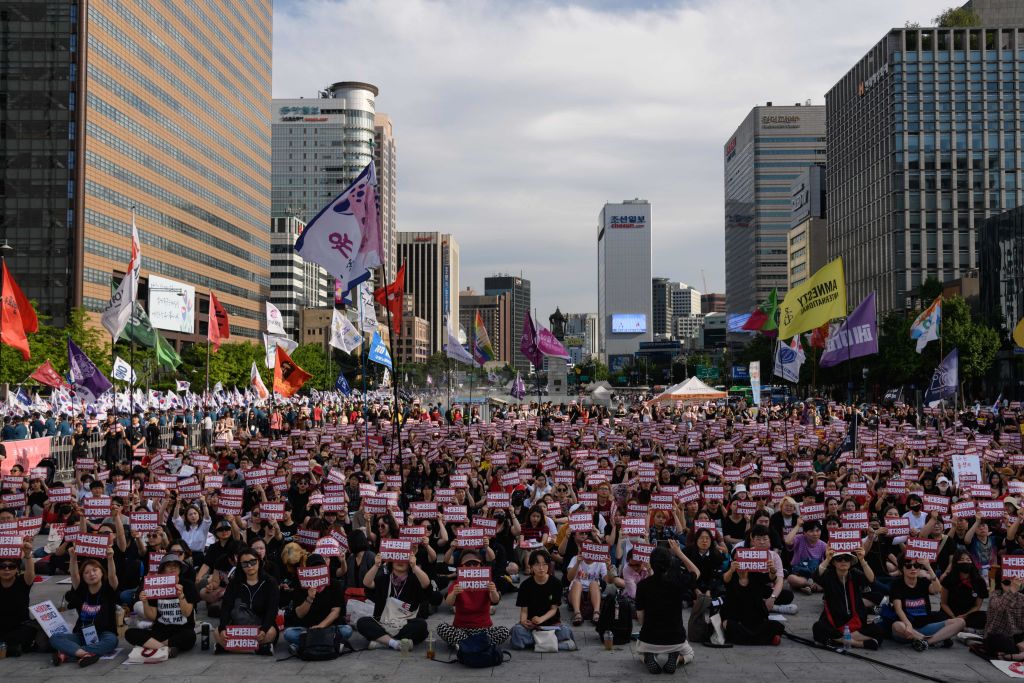
The place Jiyoung had an abortion was the last place on Earth she would have chosen to do it – if only she had had a choice.
“Another woman had just undergone surgery before me in the same chair – it was soaked in blood,” recalls Jiyoung, who asked to use a pseudonym because of abortions being illegal and the stigma she would likely face if she went public. “I didn’t complain. I knew this was the only place I could get it done.”
This harrowing scene is one that women and girls in South Korea face every day. Research by Pai Chai University estimated that up to half a million women and girls have illegal abortions each year in South Korea, while the government estimate around 50,000 were carried out in 2017. Abortion has been illegal under almost all circumstances for more than 66 years, and having an abortion is a criminal offense. This prevents accurate official data from being collected.
More egregiously, the criminalization places women and girls in danger. Denied basic healthcare, they are left with no choice but to risk their physical and mental health with clandestine and unsafe abortions.
But this could be about to change. On March 30, more than a thousand women braved a fierce gale and freezing conditions in Seoul to demand that the South Korean government end the country’s draconian ban on abortions. Now, women and girls across South Korea are calling on the government to swiftly reform the Criminal Act to guarantee access to safe and legal abortion services.
Under current laws, women who terminate a pregnancy can face fines of up to KRW 2 million ($1,850) or one year in jail. Medical professionals who assist with abortions can face prison terms of up to two years if convicted.
The only exceptions are in cases of rape, incest, specific diseases or genetic disorders, or if a woman’s or girl’s health is endangered by the pregnancy. Even in these limited instances, a woman must have the consent of her spouse to get an abortion.
The criminalization of abortions in South Korea has led to discrimination and stigmatization for generations of women and girls. These laws leave women in one of Asia’s most “developed” countries being treated like second-class citizens.
Now they are fighting back. The Saturday march was part of an unprecedented wave of women’s rights activism, marking a turning point for women fighting deeply rooted gender inequality in the country.

All those taking to the streets share a fervent hope that an upcoming Constitutional Court judgment will transform the human rights of women and girls in South Korea. On Thursday afternoon, the court is likely to rule on a challenge brought by a doctor who was prosecuted for carrying out abortions. The verdict is set to have ramifications far beyond this one case.
If the court decides that criminalizing abortion is unconstitutional, they are expected to order the government to reform the nation’s highly restrictive laws. It would be long overdue.
As local women’s rights activist Jay told us: “The effects of criminalization are manifold. It violates women’s right to health in cases where they are having to undergo abortions in unsafe facilities, without the necessary counseling or support.
“Many women also have to contend with male partners threatening to report them to the police and to their families if they are planning an abortion.” This shameful situation cannot go on, and South Korea seems to finally be waking up to this fact.
The movement for decriminalization has steadily built up momentum since first gaining traction in 2016. In 2017, more than 235,000 people signed a petition calling for the ban on abortion to be lifted. In late 2018, a government commissioned poll showed that 75% of women wanted the law revised.
At Amnesty International, we believe everyone should be free to make their own decisions about their reproductive lives, including when and if they have children. The statistics and research tell us that abortions will always happen in South Korea, regardless of the law. But currently, instead of undergoing the procedure in a safe environment, women and girls who want abortions must risk their freedom — and their physical and mental health.
Among them are women like Jiyoung. “After the operation my bleeding was really severe, so I had to go back to that awful hospital that I would rather die than return to. The doctor and nurse paid little attention and offered no real explanation, even as a clump of blood fell out of me. What can you do in a place like that?”
This is a position no woman should ever have to endure. It is time for South Korea to ensure they never have to again.
More Must-Reads from TIME
- Cybersecurity Experts Are Sounding the Alarm on DOGE
- Meet the 2025 Women of the Year
- The Harsh Truth About Disability Inclusion
- Why Do More Young Adults Have Cancer?
- Colman Domingo Leads With Radical Love
- How to Get Better at Doing Things Alone
- Michelle Zauner Stares Down the Darkness
Contact us at letters@time.com